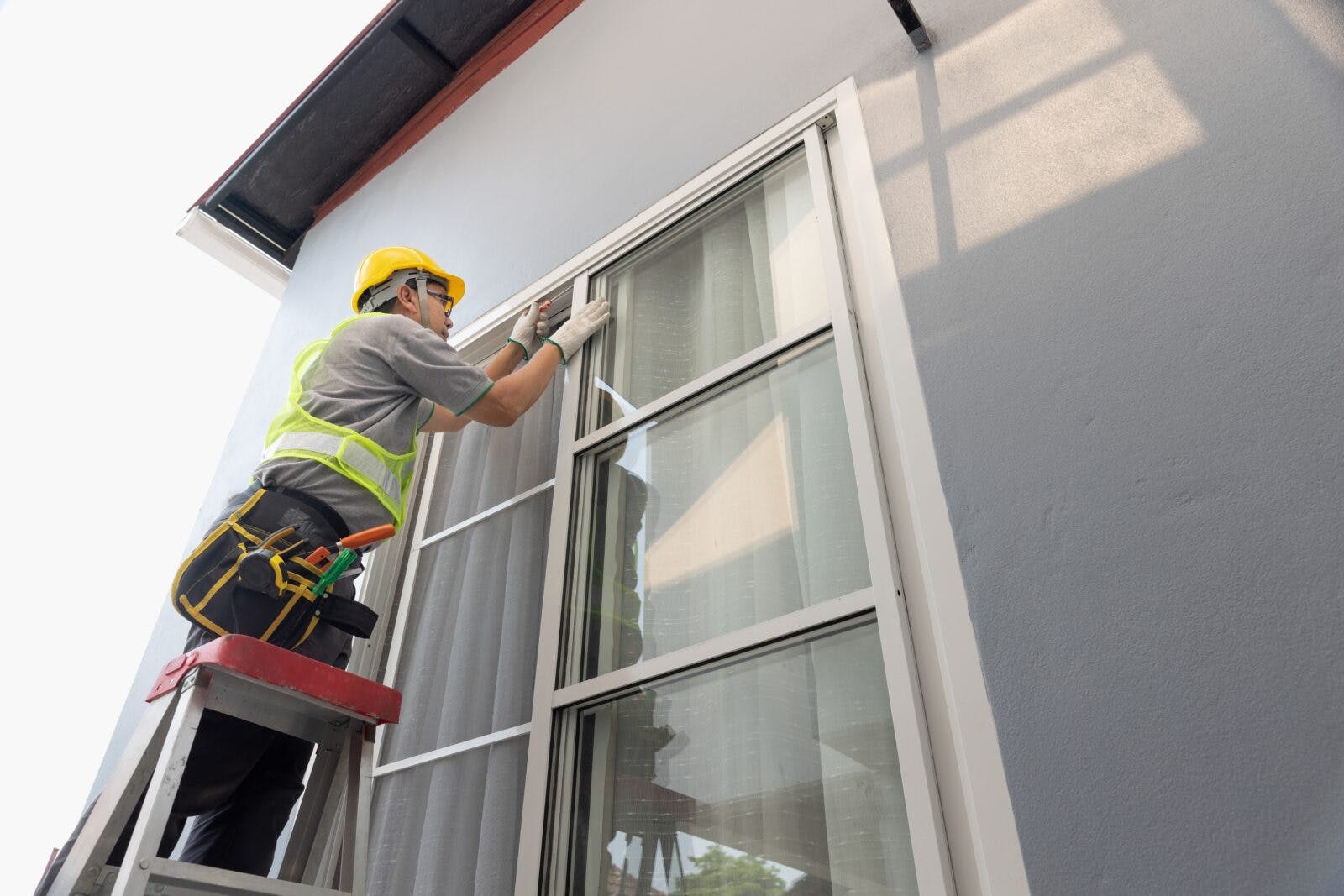It starts at the turn of autumn with a slight draft slipping through. By spring, they no longer open properly and may show winter-related age. Windows provide essential value and utility in a home, but over several years, they will eventually lead to disappointment and the inevitable question: Do I repair or replace them?
Windows play a crucial role in any home. They usher in natural light to illuminate interior spaces, enhancing the aesthetic appeal and creating a sense of openness. They also offer ventilation and contribute to energy efficiency by helping regulate indoor temperatures.
Fast fact: Heat loss and gain through windows are responsible for more than 25% of residential energy use, according to the Department of Energy.
What’s not to love about these glass portals to the outside world?! Well, there is the inconvenience of making repairs or replacing them.
Windows come in all shapes and sizes – casement, picture, storm, skylight, bay, arch and more…

…and, therefore, there is a range of considerations when deciding to repair or replace the frames.
Typically, windows only need to be repaired when homeowners confront broken glass, manageable wood rot, jamming/sticking when opening or closing and cranky locking devices. The costs can range from $50 to $250 for simple fixes and more if the windows are either large or uniquely designed.
Owners should consider replacing their windows in more serious instances:
Aging: Windows have varying lifespans, usually around 30 years. If they have been repaired and painted a few times and simply don’t look serviceable, it may be time for a new set.
Drafty: If your windows are really old, they may be single-pane and cause issues with internal temperature regulation. Double- and triple-pane windows are excellent for sound abatement and energy efficiency.
Deteriorated frames: Removing and rebuilding a fully rotted window will run about the cost of a brand-new set with upgrades.
The cost to replace windows will vary widely, again based on size and complexity. Typically, they will run about $400-$800 per window. However, custom windows can cost as much as $1,400 each, including installation and appropriate disposal of the old window.
The materials used in the window help dictate price:
- Vinyl and aluminum windows are the least expensive and are less durable.
- Composite frames and cellular PVC are slightly more durable and are priced in the middle.
- Wood, fiberglass and steel windows are at the top of the price range but offer low maintenance and long-term durability.
Even the choice of glass can vary in price. In addition to single- through triple-pane, glazing can include low-emissivity (Low-E) coatings to block heat loss, laminated glass for increased soundproofing and tempered or “safety glass” that is extremely strong.
When shopping for windows at a retailer, read the energy-rating information on the side of the casement. You can learn more about how to read window labels here.
Did you know: Multi-paned windows usually include argon, an inert and invisible gas pumped between layers for added insulation.
Choosing a window company to purchase and install the frames is equally important. Like interviewing mortgage lenders, home insurers and real estate brokers, consumers should consider speaking with at least two window dealers to compare contractors, as well as window styles, costs, availability and delivery times.
Before hiring an installer, think about asking these questions:
Are you a full-time window installer?
Have you installed this particular kind of window before?
Are you licensed with the state?
Do you or your business have certifications such as InstallationMasters or American Architectural Manufacturers Association? (These are some of the highest levels of training certifications available.)
Do your windows come with a warranty, and are those details provided in writing?
Can you give me references from recent customers who installed similar windows?
Be careful of businesses that struggle to answer these routine questions. Also, avoid writing a personal check or paying cash upfront for services. Yes, companies will require a down payment on the windows – typically half up front and the balance at installation.
Use a credit card as a more secure method of payment. If you encounter an issue with the purchase, credit card companies typically offer dispute resolution services. They can investigate the issue on your behalf and potentially issue a chargeback if warranted, refunding the purchase amount.
Ultimately, investing in the right windows enhances your home’s aesthetics, energy efficiency and comfort. Whether repairing or replacing, make informed decisions to enjoy the full benefits these essential features offer.




